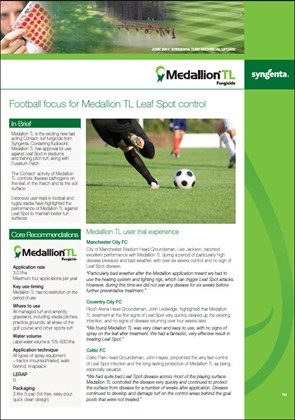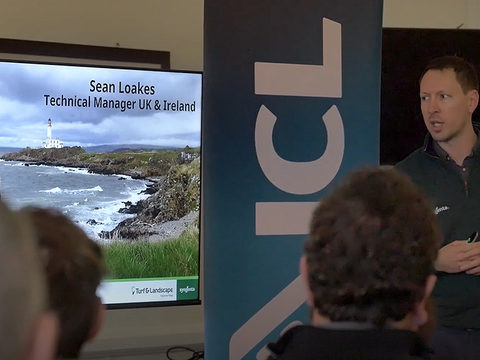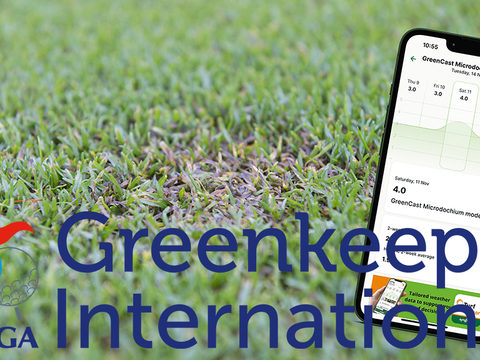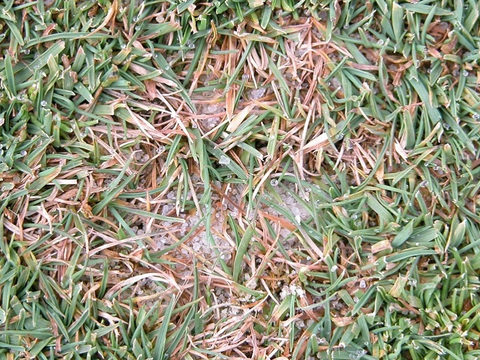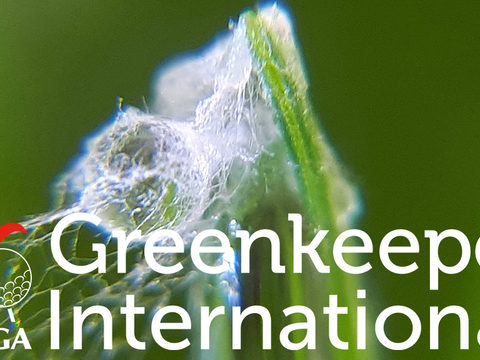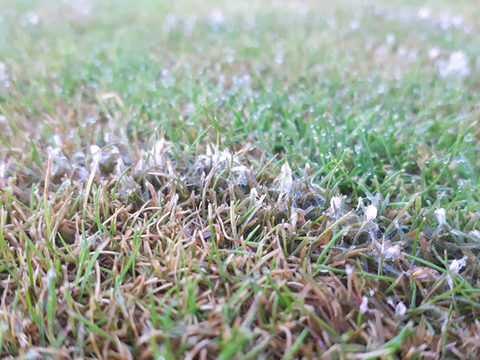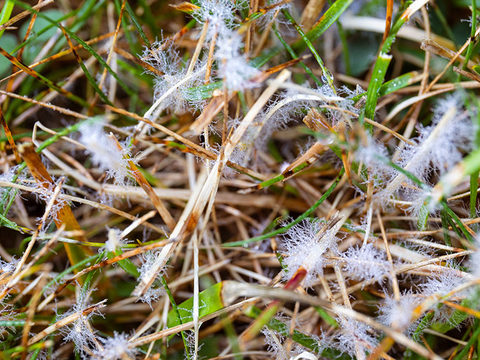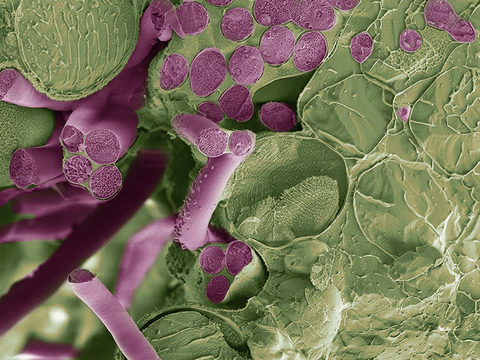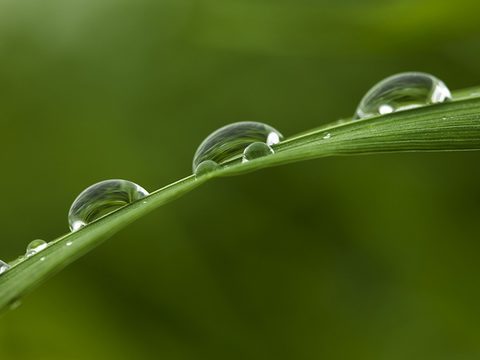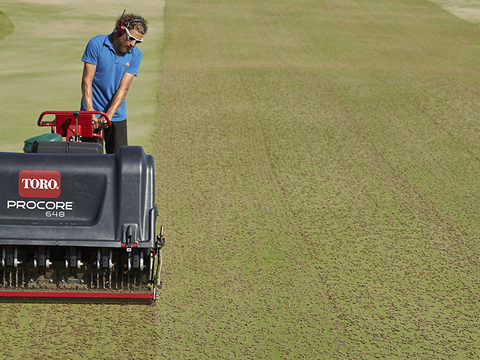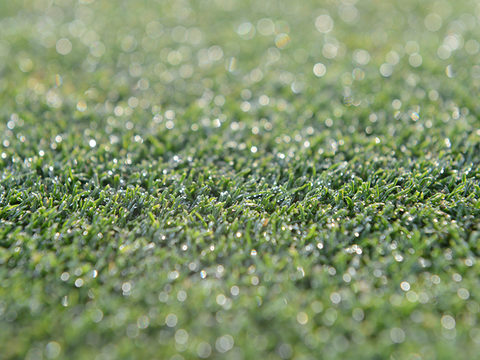GreenCast in UK and Ireland - Hot and humid risk for stadium Leaf Spot attack

With temperatures rising, football stadium managers will have to be more alert than ever to the risks of Leaf Spot infection breaking out, warns Dr Simon Watson of Syngenta. He highlights the humid conditions in stadia are especially conducive to the disease, with the potential for rapid spread and melting out - resulting in reduced turf quality that is more susceptible to wear and further damage.
"On hot still days stadium design can effectively create a concrete cauldron. Humidity and temperature at the pitch level can rise alarmingly, providing the optimum conditions for Leaf Spot development," according to Dr Watson. "With the short break from the end of the season, compounded by many alternative uses for stadia over the summer, groundsmen cannot afford any Leaf Spot outbreaks."
Dr Watson reports the new Syngenta fungicide, Medallion TL, has a label approval for the Leaf Spot, with the recent experiences of stadium managers highlighting its value for effective long-term protection, even under season-long difficult conditions.
City of Manchester Stadium Head Groundsman and Barclays Premier League Groundsman of the Year, Lee Jackson, reported excellent performance with Medallion TL during a period of particularly high disease pressure and bad weather, with over six weeks control and no sign of Leaf Spot disease.
"Particularly bad weather after the Medallion application meant we had to use the heating system and lighting rigs, which can trigger Leaf Spot attacks," said Mr Jackson. "However, during this time we did not see any disease for six weeks, before further preventative treatment was applied."
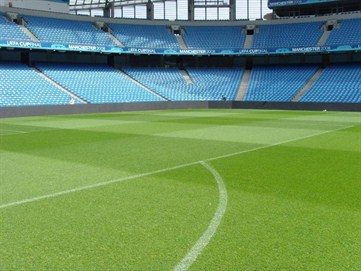
The Award winning City of Manchester Stadium turf.
The excellent results were confirmed by Ricoh Arena Head Groundsman, John Ledwidge, who highlighted that Medallion TL treatment at the first signs of Leaf Spot very quickly cleared up the existing infection, and no signs of disease returning over four weeks later. "We found Medallion TL was very clean and easy to use, with no signs of spray on the leaf after treatment. We had a fantastic, very effective result in treating Leaf Spot," he added.
The winter performance of Medallion TL was highly praised by Celtic Park Head Groundsman, John Hayes, who pinpointed the very fast control of Leaf Spot infection and the long-lasting protection being especially valuable. "We had quite bad Leaf Spot disease across most of the playing surface," he recalled. "Medallion TL controlled the disease very quickly and continued to protect the surface from disease for a number of weeks after application. Disease continued to develop and damage turf on the control areas behind the goal posts that were not treated."
Leaf Spot attacks are typically triggered with temperatures of around 20ºC, which will be exacerbated if rain or irrigation leads to prolonged leaf wetness. As the temperature increases, blighting and melting out occurs, warns Dr Watson. "For optimal turf quality, fungicide treatments with Medallion TL or Heritage Maxx should be applied when there is a high risk of infection having taken place, but before there are visible signs of disease," he advised.
Dr Watson advocates that increasing airflow at pitch level and raising the cutting height will alleviate stress on plants and lower susceptibility to disease. Careful irrigation scheduling can also help avoid leaf wetness or splashing around spores. He advises that clippings should always be boxed off, to remove sources of Leaf Spot inoculum.
"Lush top growth is especially susceptible to summer Leaf Spot infection, so it's important to get the nutrient inputs right and avoid over fertilising pitches. The use of a Primo Maxx programme can help reduce stress, enhance turf density and may help lower the risk and damage of disease attack," he added.
Click here or on the image below to download the new Syngenta stadium turf Leaf Spot Technical Update.
